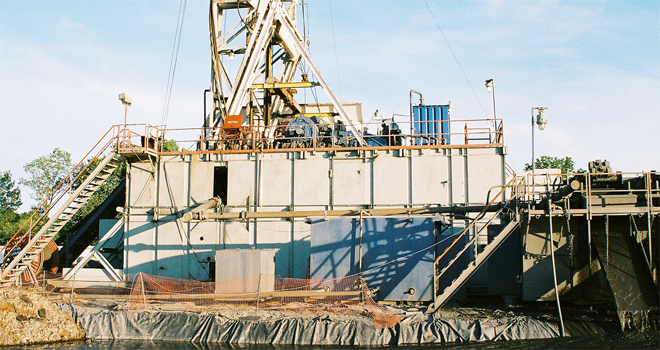Earlier today, TPM’s Carl Franzen flagged a study which reported that most Americans don’t know what hydraulic fracturing (aka ‘fracking’) is — the process of extracting oil and gas from rock by pumping highly pressured water and other liquids into the ground.
I wasn’t terribly surprised by that finding. But it reminded me of a very interesting finding from our recent annual TPM Reader Survey about our readers’ views on fracking.
As you know if you fill out our annual survey we ask a lot of questions about public policy issues. We do it over a 24 hour period and we get a huge sample — never fewer than 15,000 completed surveys in the six years we’ve done it and usually as high as 25,000.
Needless to say, this is only a survey of our audience. But TPM has an audience of 2.5 to 3 million people. The wording of the questions is identical. We administer the survey on the same time cycle each year. We have response rates high enough to have minuscule margins of error. In other words, this is pretty reliable data.
In 2010 and 2012 we asked the same question about fracking (in addition to many other questions about energy policy). And the response showed a pretty severe deterioration in public support for the process.
We had a battery of questions with the following lead in: “Please tell us how you feel about this statement – The U.S. government should increase investments in the following:”
One of the following was “natural gas exploration”. We didn’t use the word ‘fracking’. But they’re inextricably tied together both in the public mind and in reality.
So, what’d we find?
Here’s the data from both years.
“Please tell us how you feel about this statement – The U.S. government should increase investments in the following:” … “natural gas exploration”
Strongly Agree 8.5% (2010); 4.9% (2012)
Agree 47% (2010); 30.3% (2012)
Not Sure 15.5% (2010); 8.7% (2012)
Disagree 23.7% (2010); 35.7% (2012)
Strongly Disagree 5.3% (2010); 20.4% (2012)
There are a lot of different ways you can arrange this data. In 2010, 55.5% either agreed or strongly agreed and two years later 56.1% either disagreed or strongly disagreed. That’s a big difference. And the polarization also increased: substantially fewer people didn’t have an opinion.









